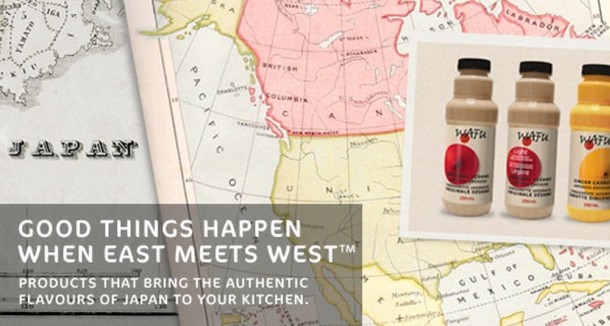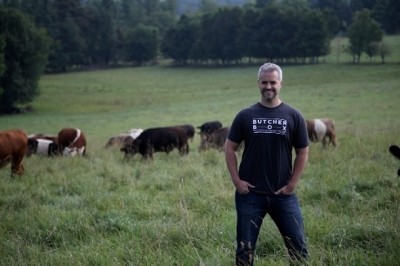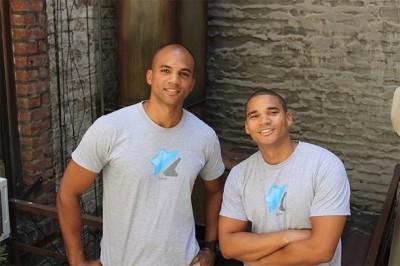Equity crowd funding will transform food industry, expert says

Gil Michel-Garcia is CEO of Wafu, Inc., a Quebec-based company that has exploited a niche for new tastes in the condiment sector via its line of dressings and mayonnaises that feature Japanese flavors. Research had shown that consumers were accepting new flavors when out and and about, but not at home, he said.
“The penetration of multicultural tastes into a mainstream market is an ongoing trend. Kids nowadays are up for eating anything. The flavors are really meshing,” Michel-Garcia told FoodNavigator-USA.
“But when cooking at home, Americans and Canadians continue to eat in a very traditional way. At home they aren’t making pad thai or pho soup. When we saw this in the research, we saw an opportunity to bring those kinds of flavors into the everyday experience. Wafu wants to ‘Japanize’ the Western food experience, for lack of a better word,” he said.
Funding gap
The company found significant early success with its Japanese-flavored condiments. But growing beyond that, the company was running into the same funding gaps that afflict many small companies. Michel-Garcia has a background in corporate finance as a lawyer who helped foreign companies invest in US firms, so he said he’s well versed in the pitfalls faced by investors as well as by the companies themselves.
“Almost everybody who starts starts with their own savings.They tap their retirement savings or use their house as collateral. If you want to grow from there, at that stage you are too small for most banks to consider as a commercial client. So you hit up friends and family for money. They are giving you money based on your personal credibility in most cases, not based on some sort of business analysis. They call that the 'friends and family' round,” Michel-Garcia said.
“At $2 million in sales you are still not in the range of being treated as a corporate client. You have a black hole from there to above $3 million, and an even bigger black hole from $3 million to $10 million. Most private equity firms won’t invest in a food company because it is not going to become the next Google,” he said.
JOBS Act impact
One alternative is crowdfunding, a avenue for raising capital that has become easier with changes in US law under the JOBS Act (Jumpstart Our Business Startups). The law eased certain securities restrictions that pertained to how securities are peddled to investors.
Previously, private placements could be carried through with accredited investors, Michel-Garcia said. But the catch was that the ‘private’ part really had to be that; no advertising of the offering was allowed.
As long as the investors were ‘accredited’ (meaning, in this case, having more than $1 million to invest) the securities regulators would allow the transaction to go forward with only notification and the payment of certain fees required. The idea was that that category of investor can be assumed to be savvy enough not to be easily misled.
The rule didn’t mesh well with the modern world of the Internet, Michel-Garcia said. Information flows too freely and no longer conforms to the Mad Men-like scenario of a few phone calls among a group of insiders. Under the JOBS Act, these placements can now be done in public, via a site like Circle Up, which specializes in funding for CPG companies.
Unlike common crowdfunding sites like Kickstarter, where, for example, a photographer might seek a few dollars from thousands of participants to fund a new expedition, Circle Up and sites like it are registered broker dealers, so the investors must still be accredited, Michel-Garcia said.
“The huge difference for us is the cost. From our perspective, getting a deal done on an equity platform like this is about $20,000 to $30,000. When private equity companies want to invest, they have certain fixed costs for due diligence that are the same whether the deal is $10 million or $50 million. It’s the same focus, the same time in analysis, the same expenses, which could run to $300,000 or more,” Michel-Garcia said.
Target raise
Doing a deal on a site like Circle Up lends an aura of respectibility to the process, Michel-Garcia said.
“They are a registered broker-dealer. When they are putting it on their portal there is an implicit recommendation that you are a company worth investing in. The typical crowd funding sites have no responsiblity for what goes up,” he said.
When entering into the process, it’s necessary to set a minimum raise. If the offering doesn’t hit that bar, it doesn’t go through, Michel-Garcia said.
In the case of Wafu, the goal is to raise enough money to penetrate the US market. The executive team added up the expenses of travel, trade show participation, shipping samples and so forth and came up with a figure of $125,000 as a minimum for the offering, which is set to go live on Monday and remain active for about three months. Setting a maxium is necessary too, to prevent the company’s orginal shareholders from becoming too diluted.
Innovation boost
Michel-Garcia said this livelier method for raising funding will boost innovation across the board, especially in sectors that tend to be dominated by big players.
“We play in the condiment sector. That is ruled by very established companies like Unilever, Kraft and Heinz. They are not growing very fast. Large food companies, because of their size, cannot take risks. They have to be very risk averse because of the time and the capital required for them to bring new products to market,” Michel-Garcia said.
“I think equity crowdfunding will have a substantial impact in the food sector by allowing more small companies to grow and innovate. If you look at the tech sector, the big companies don’t innovate themselves; they buy the startups that innovate,” he said.


















